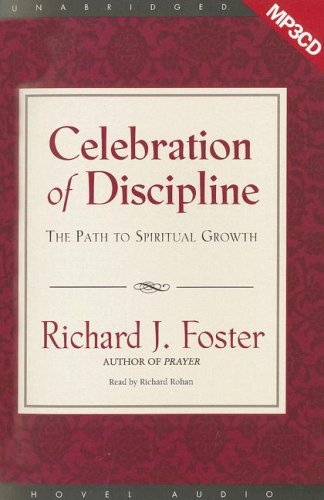
Read Celebration of Discipline: The Path to Spiritual Growth book online now. You also can download other books, magazine and also comics. Get online Celebration of Discipline: The Path to Spiritual Growth today. Are you Looking Download or read Celebration of Discipline: The Path to Spiritual Growth for free..? enjoy it.
In the twenty years since its publication, Celebration of Discipline has helped over a million seekers discover a richer spiritual life infused with joy, peace, and a deeper understanding of God. For this special twentieth anniversary edition, Richard J. Foster has added an introduction, in which he shares the story of how this beloved and enduring spiritual guidebook came to be. // Hailed by many as the best modern book on Christian spirituality, Celebration of Discipline explores the "classic Disciplines," or central spiritual practices, of the Christian faith. Along the way, Foster shows that it is only by and through these practices that the true path to spiritual growth can be found.
When Richard Foster began writing Celebration of Discipline more than 20 years ago, an older writer gave him a bit of advice: "Be sure that every chapter forces the reader into the next chapter." Foster took the advice to heart; as a result, his book presents one of the most compelling and readable visions of Christian spirituality published in the past few decades. After beginning with a simple observation--"Superficiality is the curse of our age.... The desperate need today is not for a greater number of intelligent people, or gifted people, but for deep people"--Foster's book moves to explain the disciplines people must cultivate in order to achieve spiritual depth. In succinct, urgent, and sometimes humorous chapters, Foster defines a broad range of classic spiritual disciplines in terms that are lucid without being too limiting and offers advice that's practical without being overly prescriptive. For instance, after describing meditation as a combination of "intense intimacy and awful reverence," he settles into such down-to-earth topics as how to choose a place and a posture in which to meditate. Perhaps most interesting and useful is Foster's chapter on the controversial Christian discipline of submission. According to Foster, submission does not demand self-hatred or loss of identity. Instead, it simply means growing secure in the conviction that "our happiness is not dependent on getting what we want" but on the fulfillment that naturally flows from love of one's neighbors. Such wise and encouraging suggestions have helped many readers to discard the idea that discipline is an onerous duty and to move toward a liberating and simpler idea of discipline--whose defining character, as Foster never forgets, is joy. --Michael Joseph Gross
